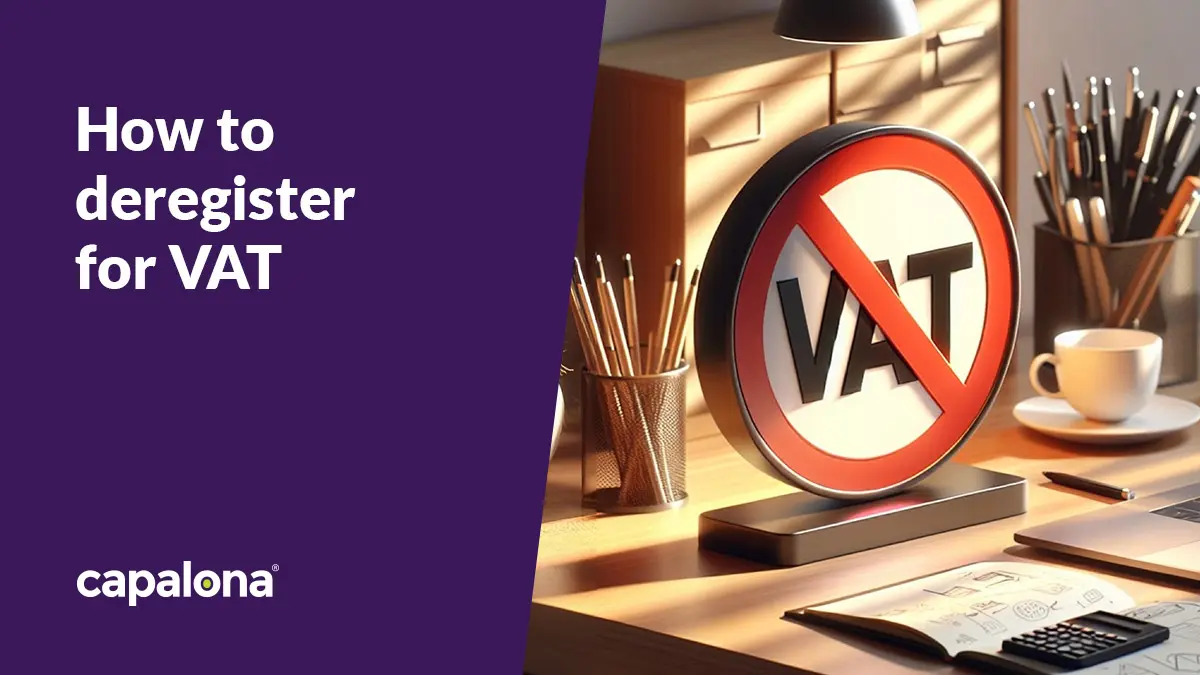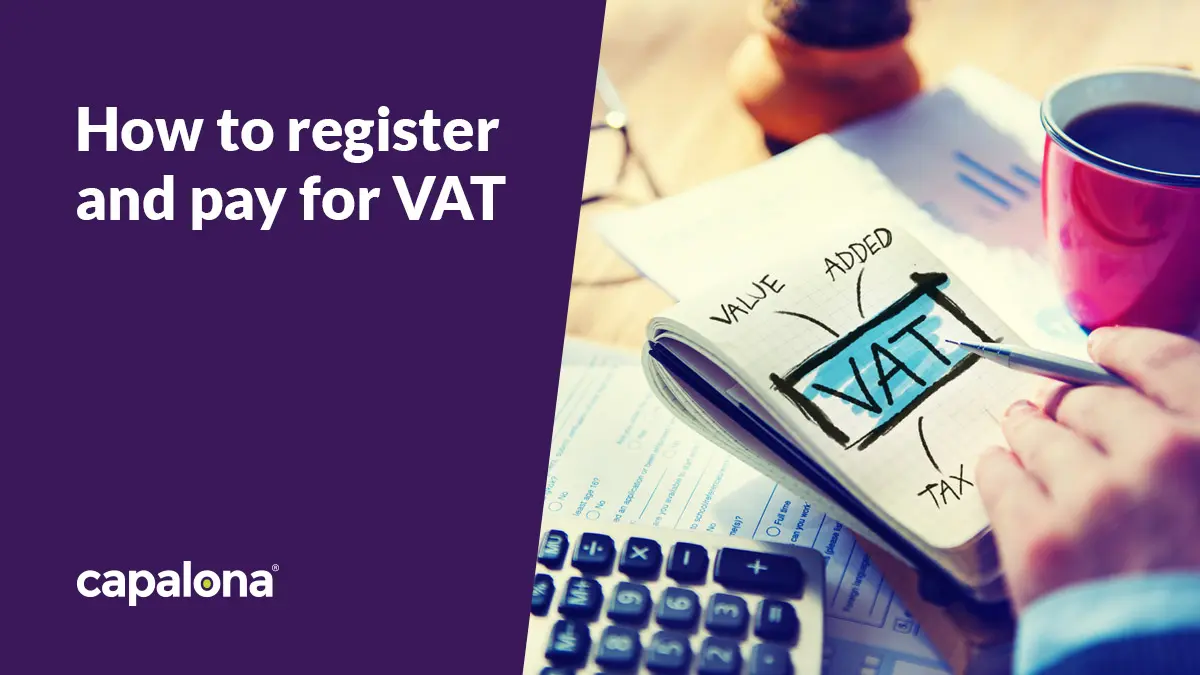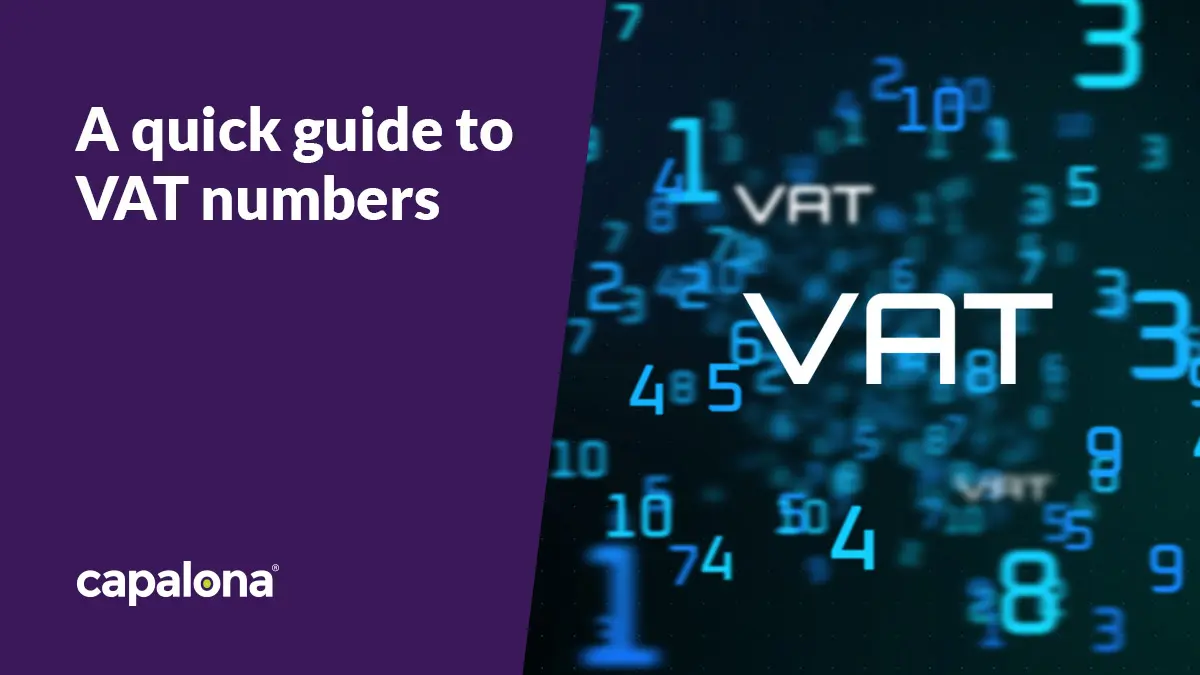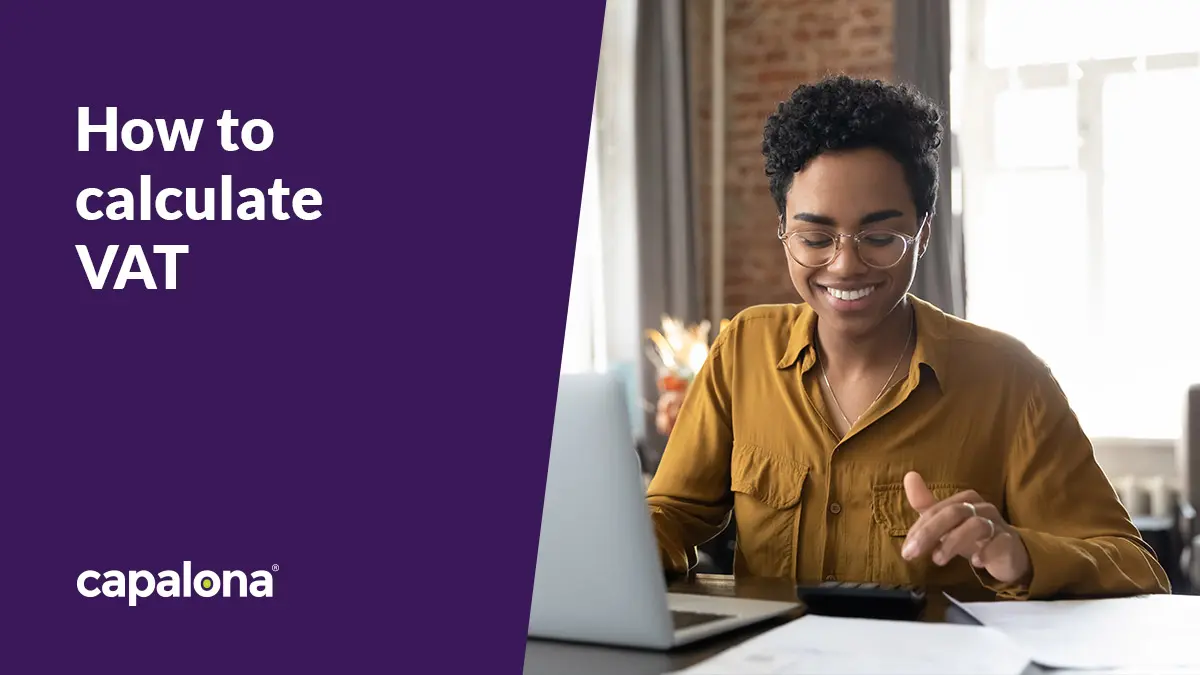If you’re wondering how to deregister for VAT or have questions about the process and the reasons why you might deregister, keep reading to learn more.
Why should I deregister for VAT?
You might want to deregister for VAT for many reasons, and you might also not have a choice. For example, if your business ceases trading, HMRC requires you to cancel your VAT registration. If you fail to do so, you could receive a ‘failure to notify’ penalty.
Reasons to consider deregistering for VAT include:
- Your business ceases trading (it is compulsory to deregister in this instance)
- If you sell your business
- You no longer provide VAT-taxable goods or services
- You join a VAT group registration
- Your business no longer engages in taxable activities
- Your taxable income drops below the £90,000 annual threshold
Disadvantages of deregistering for VAT
Even if your business falls under the VAT threshold of £90,000 per annum, you can remain VAT registered. By remaining registered, you won't have to re-register if your income improves, and you can still reclaim the VAT on goods and services you purchase through your business.
What is the VAT deregistration process?
1. Determine eligibility
To deregister from paying VAT you must be eligible to do so. You're eligible if your business has ceased trading or your income falls below the VAT threshold of £90,000.
2. Tell HMRC
Once you've determined you're eligible to deregister, you need to notify HMRC; you can do this through your Government Gateway account.
3. Submit a final VAT return
Once you deregister from VAT, you must submit a final VAT return. The return should include all VAT purchases up until the date you deregistered. You may also have to pay VAT on any stock or assets you had on your books when you deregistered.
4. Keep VAT records
After deregistering from VAT, you must keep your VAT records for six years. This is in case HMRC decide to conduct an audit, or they decide to review your past VAT transactions. You should keep documents, including sales and purchase records, VAT returns, cash books and relevant HMRC correspondence.

How to deregister for VAT
There are two ways to cancel your registration — online and by post. Applications can take HMRC three weeks to confirm VAT has been deregistered. During this period, you must continue to charge VAT as usual.
Deregister online
The quickest way to cancel your VAT registration is online by logging into your account using your Government Gateway credentials. Simply select the ‘deregister for VAT’ option and follow the instructions. You’ll need your VAT registration number, business name, contact details and other information on hand to deregister.
Deregister by post
If you’d prefer to cancel your VAT registration by post, you must use the VAT7 form. You can access this form on the HMRC website. The form must be filled out online, printed, and posted to the address printed at the bottom of the form.
FAQs on how to deregister for VAT
Still have some VAT deregistration questions? Take a look at some common questions below.
Can you be forced to deregister for VAT?
Yes, HMRC makes it compulsory for businesses to deregister for VAT if your business ceases trading. If you unnecessarily deregister for VAT, HMRC can re-register you automatically. Businesses have a 30-day deadline to deregister if their company ceases trading; if you don’t meet the 30-day deadline, you could face penalties.
How long after registering for VAT can you deregister?
You do not have to wait for a period of time before deregistering for VAT. You can deregister at any time.
How long does it take to deregister for VAT?
Deregistering for VAT takes HMRC about three weeks, regardless of whether you send your application via post or online.
Can a Limited Company deregister for VAT?
Yes, a limited company can deregister for VAT once they no longer meet the VAT threshold of £90,000.
Can you deregister for VAT at any time?
If your business ceases trading, you must deregister within 30 days. If you voluntarily registered for VAT, you can deregister at any time.
Do I have to pay back VAT if I deregister?
Yes. When you submit your final VAT return, this will cover up until the point of deregistration. Any VAT owed will be paid then.
If you’re worried about paying your VAT bill on time, you can apply for a VAT loan, spread the cost of your bill over the coming year and improve your cash flow. Find and compare VAT loans.





